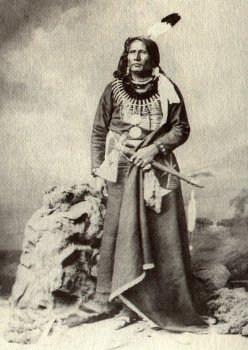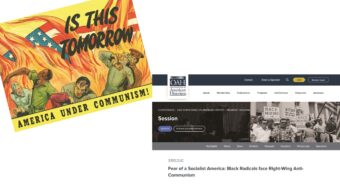
On May 12 in 1879, Chief Standing Bear of the Ponca tribe was declared a man in the federal courts of the U.S. It was the first time the courts admitted that Native Americans were human beings entitled to all human rights.
The Ponca tribe had long inhabited 96,000 acres of ancestral land when, in 1868, the Fort Laramie Treaty took it away from them.
The first they heard of the treaty was when they were being told to get off their own land.
Standing Bear refused to leave but was arrested and sent to Dakota Territory. Hundreds of others were forced to march in the Winter cold to the territory. Many died on the march and many others dies of disease and starvation on the infertile, cold and rocky land they were sent to. The Ponca had been farmers on their own land but now, without any of their tools, they were forced to beg from other tribes just to survive.
Standing Bear led a group of more than 30 on a trek back to their old land but they were arrested.
The U.S. Attorney argued that Standing Bear had no protection under the law because he was not a person or a citizen under the law.
The court ruled that he was a person, that nothing in the law existed that allowed the forced removal and relocation of the Ponca, that the Poncas were entitled to the same human rights as anyone else, including life liberty and the pursuit of happiness and that custody of the Poncas by the U.S.government was a violation of the law.
Photo: Standing Bear. Wikipedia (CC)












Comments